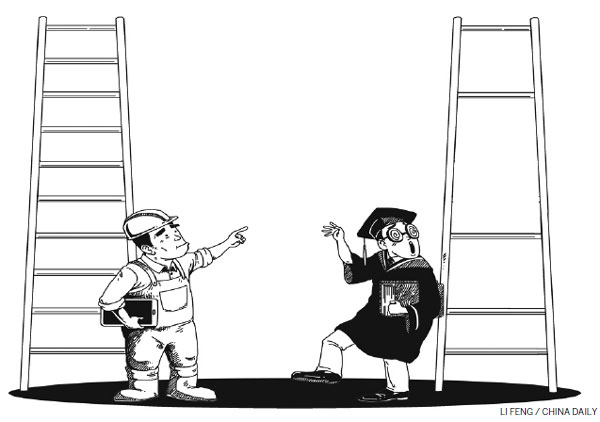A recent survey shows that the average salary of more than 350,000 college graduates across the country this year is only 2,443 yuan ($397). The survey on post-1990 generation graduates, conducted by Peking University Market and Media Research Center and information portal website Ganji.com, also shows that more than 30 percent of the graduates have to live off their parents and about 40 percent spend all the money they earn.
Amid all this, many universities have raised their tuition fees this year, up to 50 percent in some cases, prompting some observers to say that the twin developments could undermine the attraction of college education.
Some media reports have highlighted how parents stopped their children from enrolling in colleges, mainly because some graduates' incomes are even lower than that of migrant workers. Many parents used to regard college education as a way of enhancing their children's social status, and perhaps theirs too.

The challenge for education authorities, therefore, is to change the concept of "status education" through reform. For years, higher education in China has been associated with status: Getting admitted to a college is seen as change in "destiny".
In the early years of reform and opening-up, college students were quite valuable because they were few in numbers. In 2013, however, China had over 33 million college students. Given these facts, fresh college graduates can hardly expect to get priority or preference in the job market.
Students are mistaken if they thought higher education means only a college diploma, or a diploma from a well-known institution. Those who do think that way are bound to find themselves in an unwelcoming job market. The discouraging truth now is that, although students spend four years in colleges, many of them fail to learn things that will help them in the job market. Perhaps colleges are to be blamed for failing to impart practical education to students - education that will help them not only in the job market but also in other spheres of life.